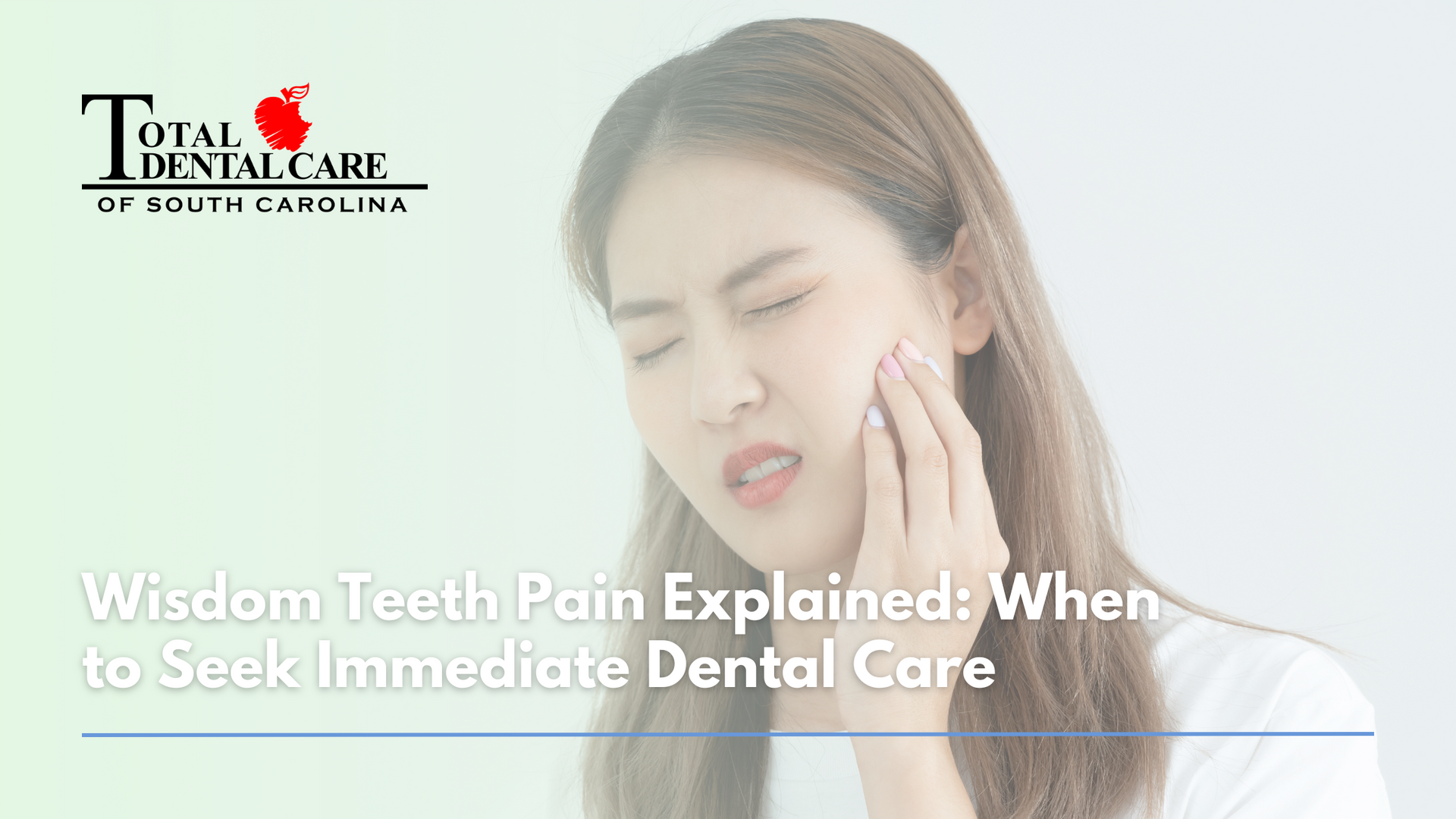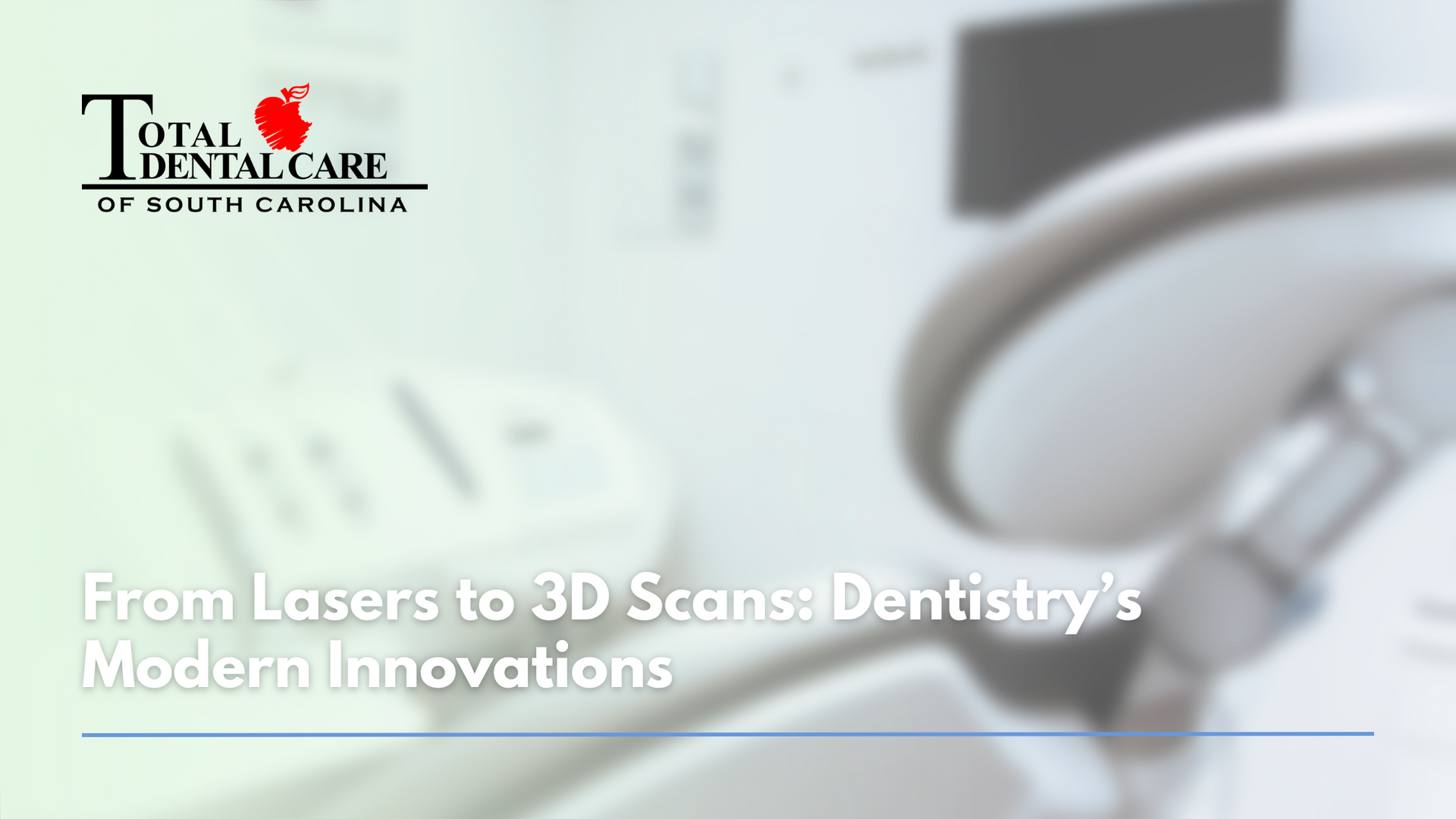Wisdom Teeth Extraction: What Our Dentist Wants You to Know
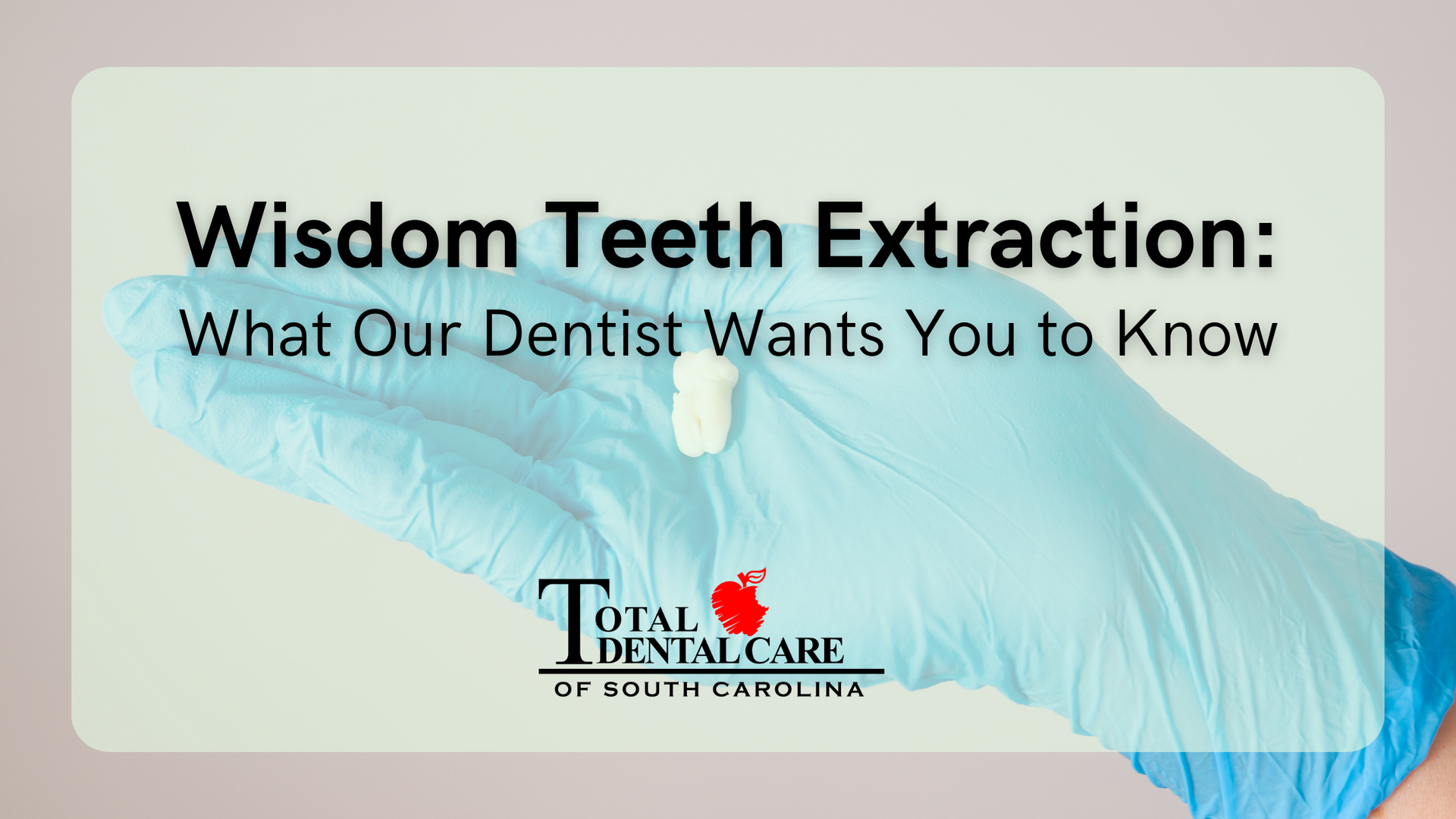
Source: Dr. Marketing
Wisdom teeth have a reputation for creating discomfort, pain, and dental dilemmas for countless individuals. They're like uninvited guests at a party – they arrive late, squeeze into tight spaces, and can often disrupt the harmony of your oral health. But fret not, for wisdom tooth extraction is a common dental procedure that many of us will face in our lifetime. It's a step towards better dental health and a pain-free smile.
Molars are the flatter teeth at the back of your mouth that are relied upon to chew food thoroughly. Although adults will have two sets of molars (eight teeth) that come with their adult teeth, many will also develop a third set of molars farther back in their mouth. These molars are often referred to as wisdom teeth, as they arrive when you are older and wiser (usually between the ages of 17 and 21). Our team at Total Dental Care of South Carolina, which is located in Columbia, South Carolina, has explained the need for wisdom teeth removal, when they should be removed, and what the treatment entails.
What is wisdom tooth extraction?
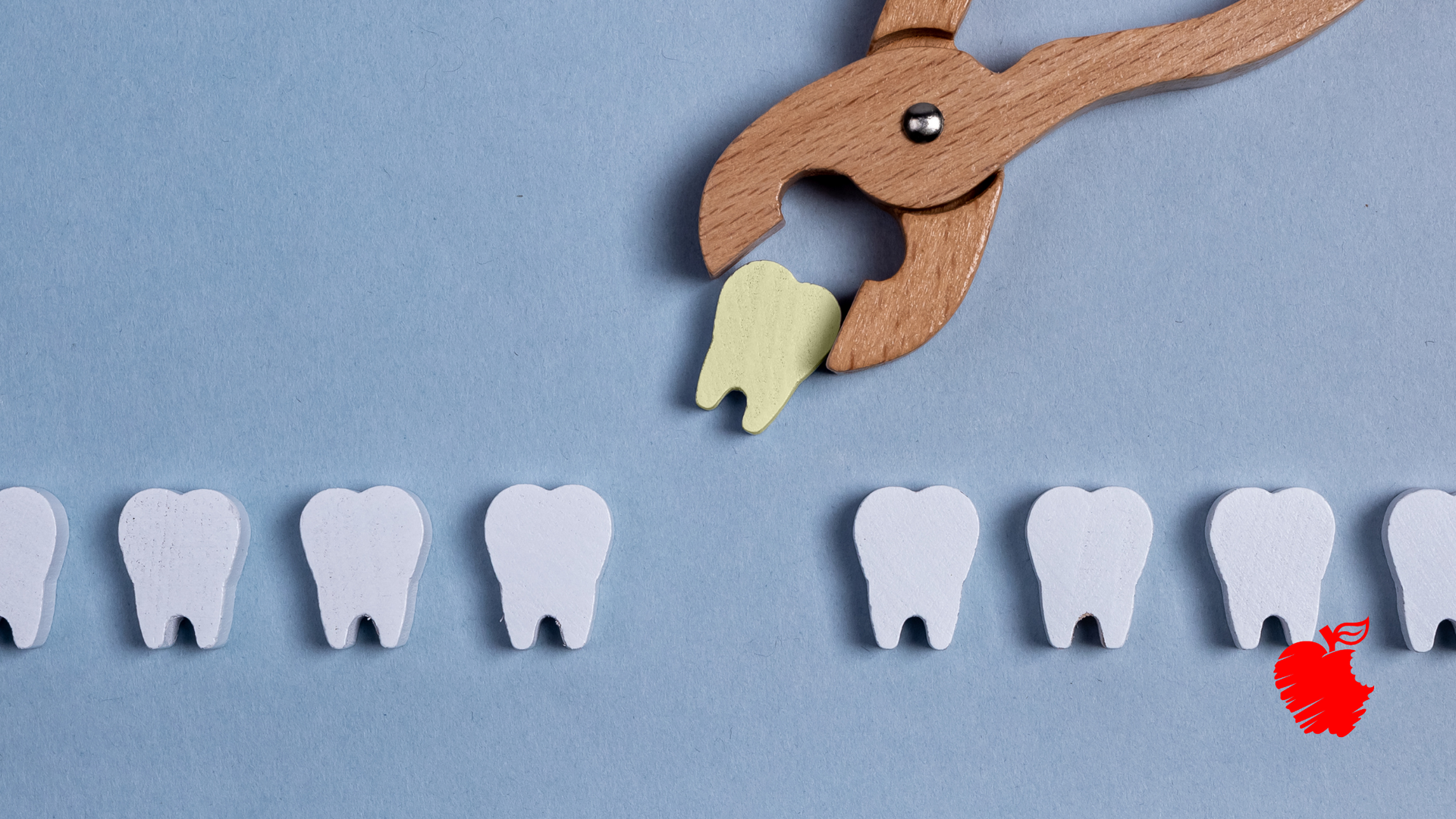
Wisdom teeth are the third set of molars in the very back of your mouth which generally emerge during late teen years or early adulthood. When a wisdom tooth is stuck beneath your gum or has insufficient room to break through the gum, the tooth is more vulnerable to disease, decay, and other dental concerns.
Why do wisdom teeth need to be removed?
Infection
By the recommendation of their dentist, many patients will have their wisdom teeth removed before an infection occurs. This is recommended because when the infection does occur, dental work or surgery is needed to prevent reinfection, which is what a root canal can accomplish.
Crowding
Wisdom teeth might crowd your mouth as they begin to emerge, which would possibly shift your other teeth. Removing them early is a great preventative step to help avoid future discomfort.
Damage To Teeth
If the shifting occurs, your teeth can become damaged from this development as well.
Cyst Infection
You might notice a cyst in the back of your mouth, which is a small pocket of tissue filled with pus, fluid, or other substances. It can occur because of the emergence of wisdom teeth.
If you are going to undergo any orthodontic work, your dentist might suggest that you first have your wisdom teeth removed. This will ensure that the wisdom teeth do not emerge after the procedure and create issues with your jaw and teeth.
Teenagers are advised to speak with their dentist about wisdom teeth removal surgery as well. Doing so at a younger age, before their roots and bone have completely formed, is a good preventative measure and allows for a more comfortable healing process.
Instances that wisdom teeth should be removed
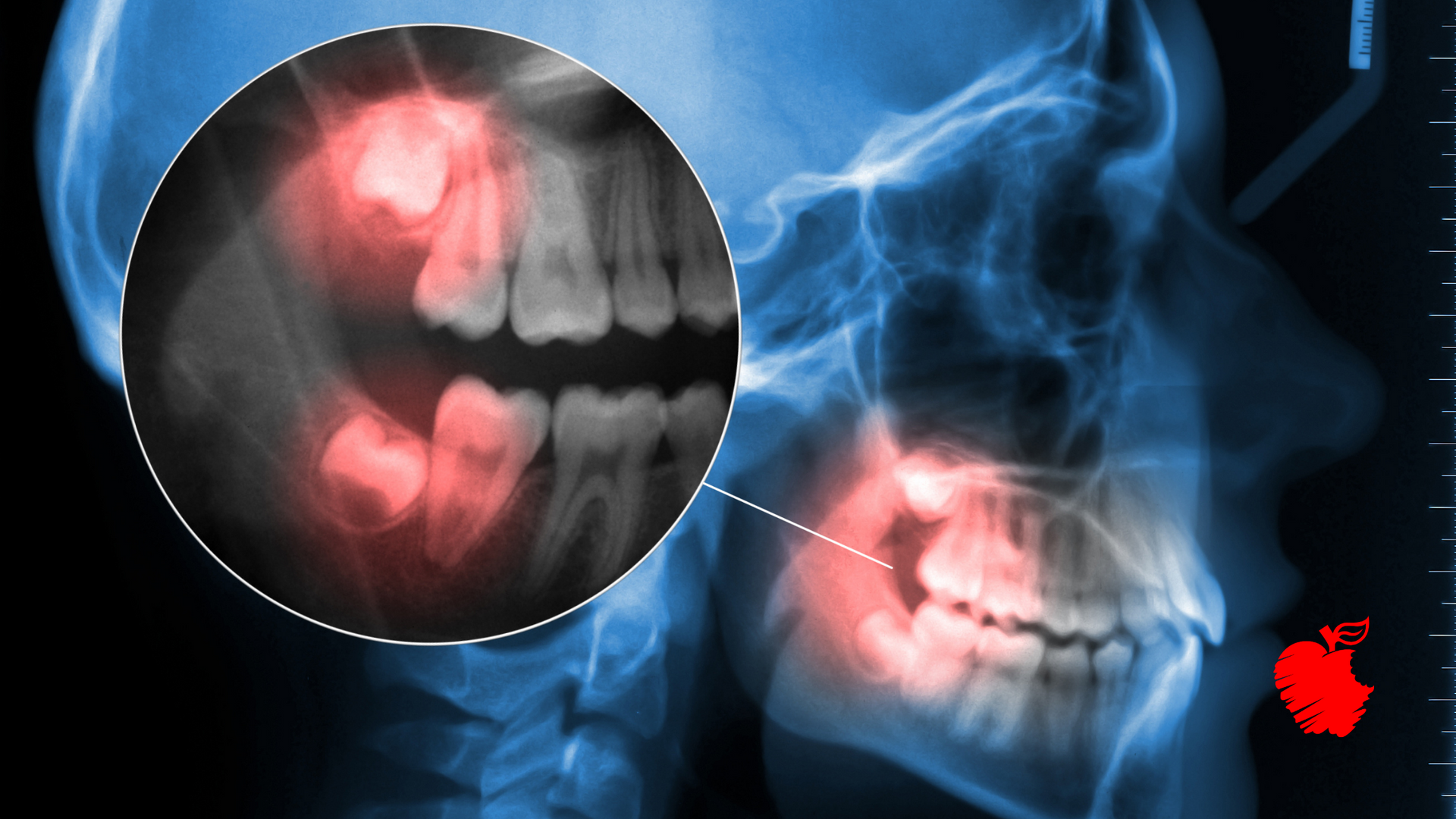
You should have your wisdom teeth removed before they can cause any issues. With an X-ray, our dentist can confirm whether you have wisdom teeth beneath your gums, and then you can proceed to remove them.
It is important to realize that wisdom teeth are more vulnerable to infection than other teeth. They are more difficult to floss due to their position in the very back of your mouth, which allows bacteria to grow.
If you notice any of the following symptoms that can be the result of a wisdom tooth infection, speak to our dentist immediately:
- discomfort or sensitivity
- red or bleeding gums
- swollen or tender gums
- bad breath
- a bitter taste in your mouth
- jaw discomfort
- jaw swelling
- stiff jaw
- struggles with breathing, speaking, or opening your mouth
My son or daughter has pain in their mouth. Is it due to wisdom teeth?
Impacted wisdom teeth can cause oral pain. However, parents should note that their children and teens may also experience pain due to improper oral hygiene. Ensure that your children are brushing and flossing their teeth regularly, while also visiting our dentists at Total Dental Care of South Carolina consistently.
Will all patients need to get this treatment?

Some patients will not have any wisdom teeth at all during their lifetime, which might seem abnormal, but there is no cause to be concerned about their oral health. While the reason for this is unknown, it is a natural development
For those patients that do have wisdom teeth, either below or above the gum line, their dentist will likely recommend that they be removed to avoid future problems.
Where will the procedure take place?
Wisdom teeth removal will occur at our dental practice located in Columbia, South Carolina once it is determined that you have them in the back of your mouth.
Wisdom Tooth Extraction Treatment Overview
Your dentist will inform you of the ease with which the wisdom tooth can be removed. For example, if the tooth is completely erupted through the gum, it can be removed as simply as any other tooth. A wisdom tooth that is beneath the gums and situated in the jawbone will require an incision into the gums and removal of the portion of bone that rests over the tooth.
Your wisdom teeth and the surrounding tissue will first be numbed with a local anesthetic much like you would experience before having a cavity filled. You and your dentist can also decide on using a sedative to limit any anxiety (nitrous oxide, oral sedative, or an intravenous sedative). With nitrous oxide, you can drive yourself home, but that is not the case if you opt to use any of the other medications.
Should I be concerned if I get referred to a Maxillofacial Surgeon?

No, it is common for either a dentist or oral and Maxillofacial surgeon to remove your wisdom teeth. In each case, you will be instructed on how to properly prepare for surgery and then recover afterward.
Post wisdom teeth extraction care tips
To ensure that you don't disrupt the blood clots forming in the back of your mouth or put pressure on the stitches, you should avoid the following for the initial 24 hours after surgery:
⦁ chewing food
⦁ using a straw
⦁ drinking hot drinks, alcohol, or caffeine
⦁ smoking
⦁ using tobacco products
⦁ Spitting or rinsing your mouth
Following the first 24 hours, you can return to your daily activities, but be sure not to:
⦁ smoke
⦁ chew hard food
⦁ Drink from a straw
⦁ swish or spit
⦁ Engage in intense exercising
You will have gauze in your mouth following the surgery and our dentist will advise you on how to properly clean and protect your mouth throughout the recovery.

Having your wisdom teeth removed is an essential procedure that every patient should consult their dentist about. For more information regarding wisdom teeth, contact the team at Total Dental Care of South Carolina. You can call us at (803) 798-1670 or visit our office in Columbia, SC.
We cannot wait to see you smile for a lifetime!

